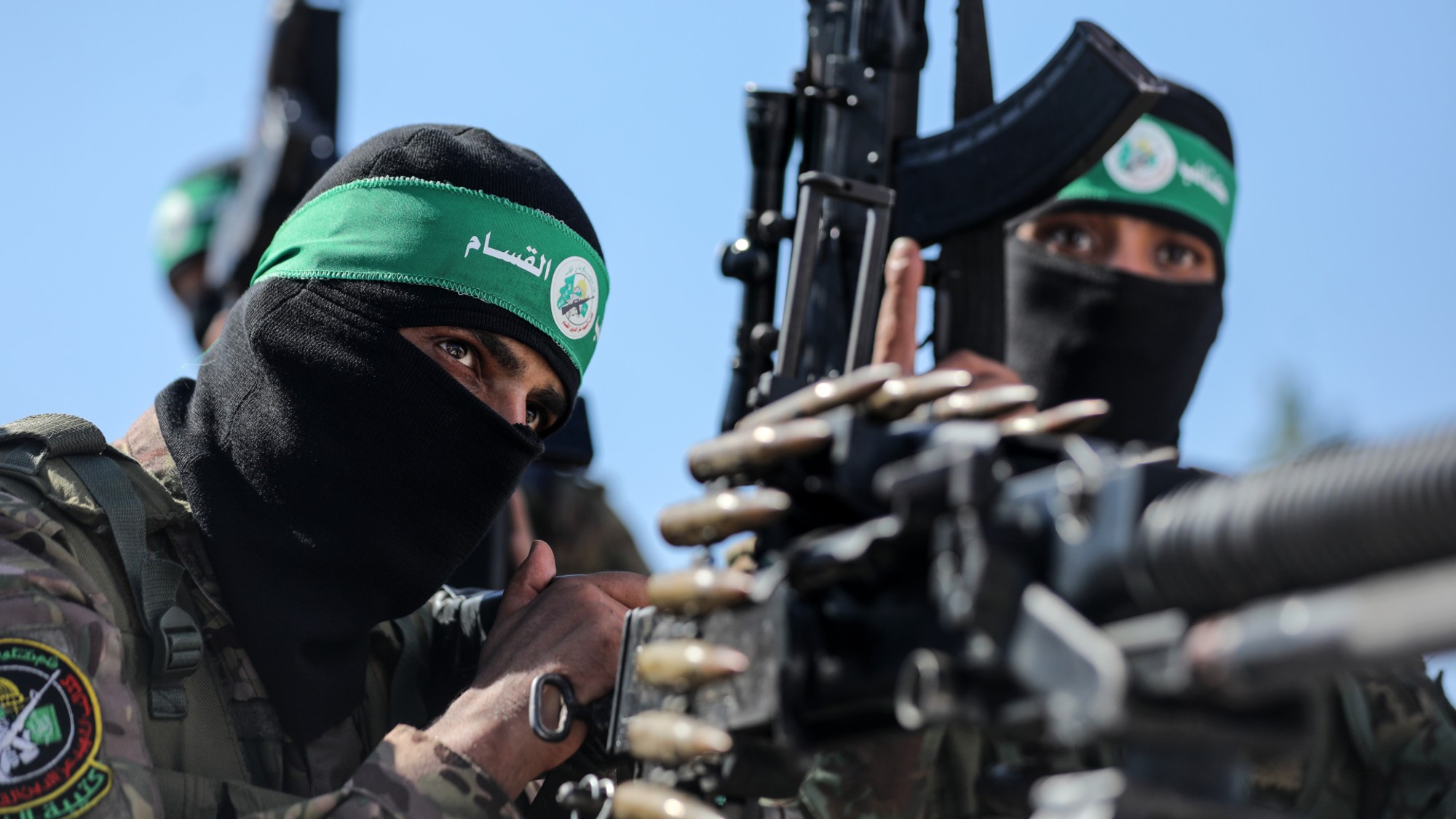How strong is Hamas?
Analysts warn that Islamist group may sustain 'lingering armed resistance for years to come'

A free daily email with the biggest news stories of the day – and the best features from TheWeek.com
You are now subscribed
Your newsletter sign-up was successful
"Does Hamas still exist militarily? Yes. Is it organised? No. The path to completely dismantling them goes on."
That was the view of a senior Israeli military official in March this year, but two months later – and more than seven months since the 7 October attack that led to Prime Minister Benjamin Netanyahu's pledge to "eliminate" the Islamist group – Israel has "failed to destroy Hamas as a military and political force" Beverley Milton-Edwards, co-author of a forthcoming book "HAMAS", wrote in The Times.
What did the commentators say?
At the time of the surprise assault that claimed the lives of more than 1,200 people and saw hundreds more taken hostage, Israel put Hamas's military strength at between 30,000 and 40,000 fighters.
The Week
Escape your echo chamber. Get the facts behind the news, plus analysis from multiple perspectives.

Sign up for The Week's Free Newsletters
From our morning news briefing to a weekly Good News Newsletter, get the best of The Week delivered directly to your inbox.
From our morning news briefing to a weekly Good News Newsletter, get the best of The Week delivered directly to your inbox.
Three months later, in an article published by the Israeli newspaper Yedioth Ahronoth, military analyst Yoav Zitun admitted the Israeli army had been "amazed every day by how strong Hamas is" in the face of intense airstrikes and ground operations by the Israeli Defence Force (IDF).
"It is a real army that was established 50 minutes from Tel Aviv over the past years" he said. Hamas has a stockpile of "hundreds of thousands of weapons", including advanced rocket launchers, explosive drones, machine guns and Kalashnikov rifles, supported by advanced communication systems and supplied by a network of tunnels spread across Gaza.
By spring of this year,the war appeared to be finally taking its toll on the Islamist group. Following months of bombardment by air, land and sea, insiders and regional experts were clear that the overall picture for Hamas was "grim", the Financial Times said in March.
Estimates of Hamas's strength are "notoriously difficult", but Israeli intelligence assessments indicate that at least 18 of its 24 battalions have been "dismantled as organised fighting forces". Half its fighters, including a number of top field commanders, are believed to have been killed, leaving behind "small guerrilla cells, emerging to fire rocket-propelled grenades or place explosive devices" said the FT. The majority of fighters are now believed to be hiding in and around the southern city of Rafah ahead of a planned assault by Israeli forces.
A free daily email with the biggest news stories of the day – and the best features from TheWeek.com
What constitutes victory for both sides remains wildly different, however, and this is a problem for Israel and for hopes of a peaceful post-war settlement. "Let's assume that all of Gaza lies in ruins, and someone will stand there left from Hamas, a wounded soldier, and will raise a Hamas flag — they've won the war," said Micha Kobi, a retired former senior official in Israel’s Shin Bet security agency. "That’s what they believe."
What next?
Strength can be measured in more than just numbers. Support for Hamas within the enclave "remains relatively undiminished", said Milton-Edwards, and a majority of Gazans recently polled still believe Hamas will win the war.
Hamas may have lost as many as half its fighters, Michael Milshtein, an ex-military intelligence officer and now a researcher at Tel Aviv University's Moshe Dayan Center told DW, "but this gap can be closed quickly".
"In Gaza there are plenty of young Palestinians that wish to join the Hamas militia," he said, echoing the belief of the group's founder Sheikh Yassin that behind every martyr are a thousand others ready for the battle.
Whatever its numbers, US intelligence analysts foresee Hamas being able to continue a "lingering armed resistance for years to come", using its extensive underground tunnel network to "hide, regain strength and surprise Israeli forces".
For Hamas, "strategic patience is a virtue" said Foreign Affairs. In order to achieve its primary goal of initiating a "longer and inexorable process leading to Israel's destruction" Hamas "needed to get out from under the burden of governing the Gaza Strip, which it had concluded was undermining rather than enabling its attacks on Israel".
Freed of that responsibility, Hamas can now carry through with its promise "to repeat the October 7 attack, time and again, until Israel is annihilated."
Elliott Goat is a freelance writer at The Week Digital. A winner of The Independent's Wyn Harness Award, he has been a journalist for over a decade with a focus on human rights, disinformation and elections. He is co-founder and director of Brussels-based investigative NGO Unhack Democracy, which works to support electoral integrity across Europe. A Winston Churchill Memorial Trust Fellow focusing on unions and the Future of Work, Elliott is a founding member of the RSA's Good Work Guild and a contributor to the International State Crime Initiative, an interdisciplinary forum for research, reportage and training on state violence and corruption.